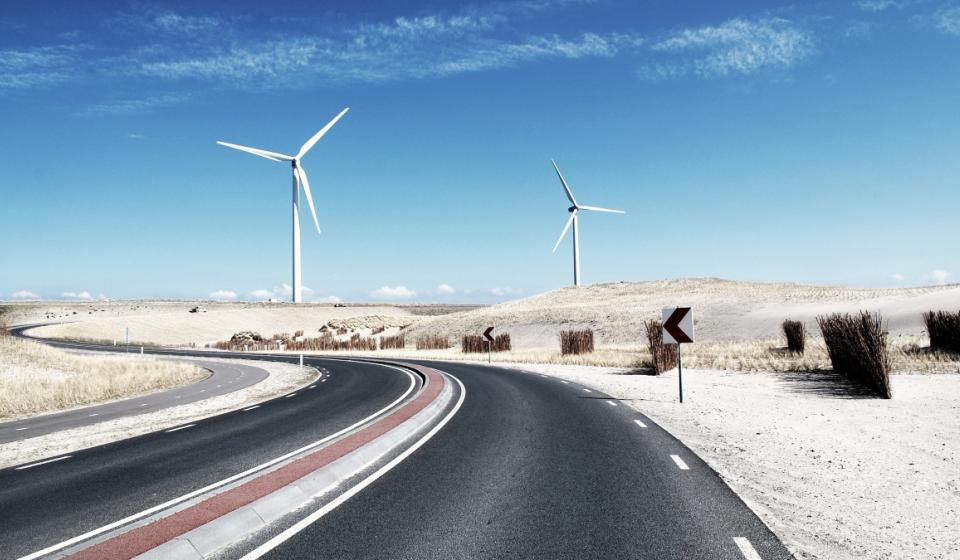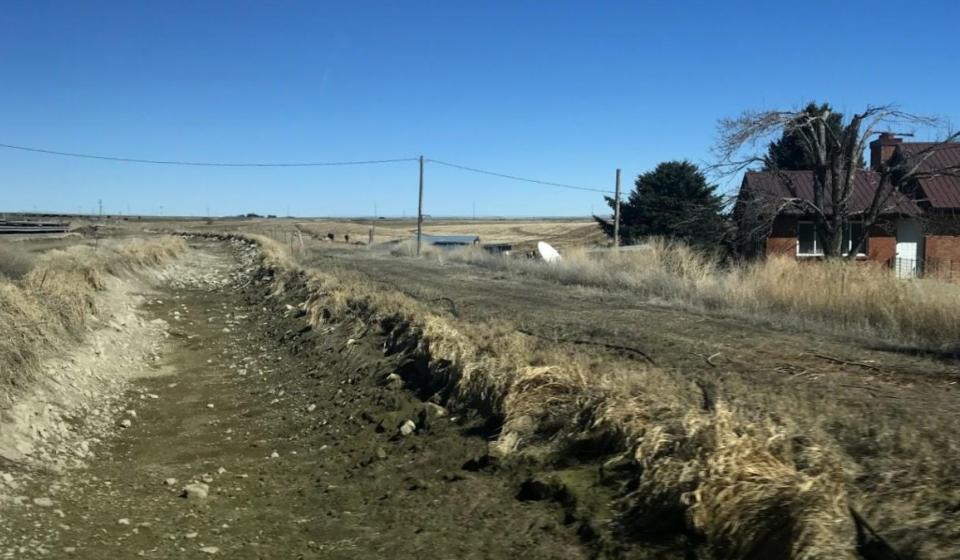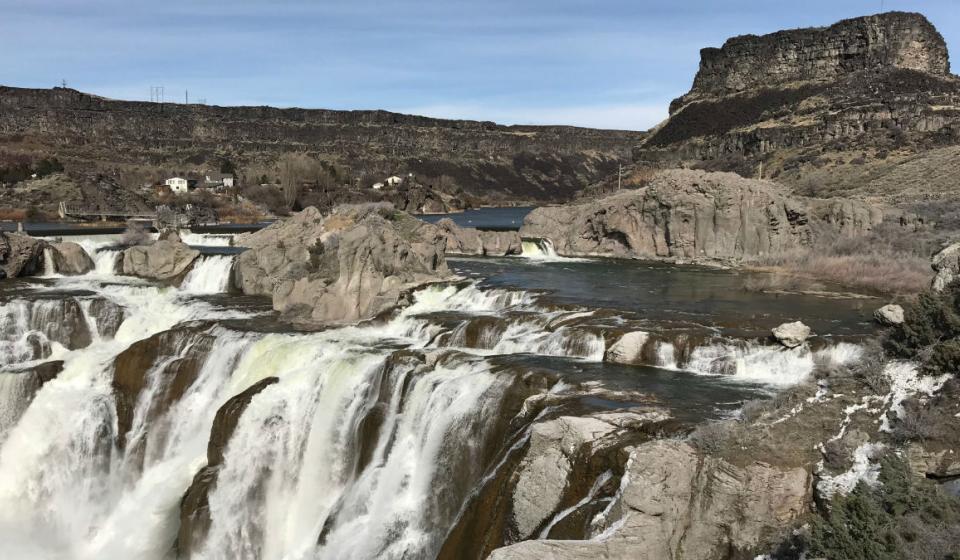EngageINFEWS Lightning Talks 2022
As part of our ongoing activities focused on highlighting best practices from researchers across the country, in 2022, participants assembled to present lightning talks highlighting challenges and lessons learned from stakeholder engagement in Food, Energy and Water Systems (FEWS) projects. Browse the lightning talk library below:
Day 1: 11 May 2022 | Facilitator: Anna-Maria Marshall
1. Bassel Daher | Lessons Learned from Stakeholder Engagement in San Antonio, Texas
2. Adena Rissman & Ana Fochesatto | Community Perspectives on Just Transitions to Grass-based Agriculture
3. Robert Barron | Role of Stakeholder Expectations in Facilitating Stakeholder Engagement
4. Khara Grieger | Engaging stakeholders in sustainable phosphorus management
5. Emily Clark | Findings and Applications of an Audience Analysis for a Water Science Gateway Organization
Day 2: 13 May 2022 | Facilitator: Chelsea Schelly
1. Anna-Maria Marshall & Luis Rodriguez | Graduate Education in Stakeholder Engagement: The INFEWS-ER Virtual Resource Center
2. Daniela Markazi | Stakeholder Engagement for Disaster Relief and Resilience: A Transdisciplinary Academia-NGO Collaboration
3. Jesann Gonzalez Cruz | Virtual Transdisciplinary Collaborations in Disaster Relief and Resilience
4. John Classen, Alison Deviney, Erin Cortus | Stakeholder engagement and transdisciplinary team evolution
Day 1: 11 May 2022 | Facilitator: Paula Williams
1. Sean Ryan | FEWSION for Community Resilience
2. Jenna Tilt | Interactive Adaptation and Collaboration Tool for Managing Water, Energy, and Land
3. Tatiana Schreiber, Shaina Opperman, Julia Cavicchi | Co-learning approaches to talking and thinking about pee: community perspectives on urine recycling communication and education
Day 1-Introduction: 11 May 2022
Introduction to the first day of video presentations as part of the EngageINFEWS 2022 Lightning Talk Series.
Lessons Learned from Stakeholder Engagement in San Antonio, Texas
The San Antonio Region is home to a rapidly growing population with developing energy and agricultural sectors competing for water, land, and financial resources. Despite the tight interconnectedness between water, energy, and food challenges, little is known about the levels of communication and coordination among the various officials responsible for making the decisions that affect the management and planning of the three resource systems. This presentation highlights various methods for stakeholder engagement carried out as part of the NSF INFEWS project in the region. It highlights key identified barriers for cross-sectoral communication and offers reflections on lessons learned.
Transition: Discussion-Daher | Intro-Rissman and Fochesatto
Discussion following the previous presentation (Lessons Learned from Stakeholder Engagement in San Antonio, Texas) and introduction to the next presentation (Community Perspectives on Just Transitions to Grass-based Agriculture).
Community Perspectives on Just Transitions to Grass-based Agriculture
We will discuss lessons learned so far from a participatory action research project through the Grassland 2.0 project, which aims to create an agroecological transformation to perennial grass-based animal agriculture in the Upper Midwest. Bringing together a diverse group from across the region, we engaged community members in a series of three workshops to address the critical justice and equity components of this transformation and to discuss preliminary findings from 120 semi-structured interviews. This presentation will highlight our approaches to relationship-building with communities of color, creating spaces for transformational thinking, and helping community organizations address silo-ing of services.
Transition: Discussion Rissman and Fochessatto | Intro-Barron
Discussion following the previous presentation (Community Perspectives on Just Transitions to Grass-based Agriculture) and introduction to the next presentation (Role of Stakeholder Expectations in Facilitating Stakeholder Engagement).
Role of Stakeholder Expectations in Facilitating Stakeholder Engagement
The design of stakeholder communication tools is as important as their content – perhaps even more so. Successful stakeholder engagement must present data in a way that conforms to the audience’s expectations; otherwise, it will never reach its target.
Engaging stakeholders in sustainable phosphorus management
While phosphorus is an essential nutrient for life and largely drives crop yields in our agricultural and food systems, its inefficient management is resulting in water pollution and ecological damage. Sustainable solutions to manage phosphorus in agricultural production and society will require interdisciplinary approaches. Such interdisciplinary approaches will need to rely on effective means to communicate and collaborate with a range of stakeholders in order to ensure that new technologies and management solutions address stakeholder needs and wants and can ultimately be adopted. A new NSF-funded Science and Technologies for Phosphorus Sustainability, or STEPS, Center is guided by a long-term vision of a 25% reduction in mined phosphates, and 25% reduction in phosphorus losses to soils and water, within a 25 year time span. To realize this vision, the Center includes a stakeholder engagement component to interact with and engage external stakeholders through formalized processes, including collaborative efforts between STEPS researchers and stakeholders to develop and co-create solutions to improve phosphorus sustainability. These solutions will ultimately reduce our dependence on mined phosphates, through improved efficiencies to better utilize and reuse phosphorus from wastes, as well as reduce phosphorus losses to the environment through the development of new materials and technologies to create more sustainable systems.
Findings and Applications of an Audience Analysis for a Water Science Gateway Organization
The Consortium of Universities for the Advancement of Hydrologic Science, Inc. (CUAHSI) provides cyberinfrastructure and educational resources to a diverse community of water scientists and practitioners. CUAHSI has grown its programs and services in recent years, but increasing engagement of our audience is an ongoing challenge. CUAHSI recently partnered with the Science Gateways Communities Institute (SGCI) to perform an organizational audience analysis and the Texas Advanced Computing Center’s (TACC) Expanding Pathways in Computing (EPIC) STEM Evaluation Services to perform a user experience evaluation for our data repository, HydroShare http://www.hydroshare.org. This presentation will summarize the outcomes of our analyses and how we have applied these findings to improve our engagement with both our broad audience and HydroShare users.
Day 2-Introduction: 13 May 2022
Introduction to the second day of video presentations as part of the EngageINFEWS 2022 Lightning Talk Series.
Graduate Education in Stakeholder Engagement: The INFEWS-ER Virtual Resource Center
Addressing wicked problems in FEW systems depends on working closely with an inclusive group of stakeholders. Yet graduate education in traditional STEM fields rarely offers training in the specific practices of stakeholder engagement. The INFEWS-ER is an NSF-funded virtual resource center, supporting graduate training in transdisciplinary skills. In this lightning talk, we will offer a general overview of the INFEWS-ERÕs Cohort Challenges and Toolbox Modules, which introduce students to the importance of stakeholder engagement and some best management practices.
Transition: Discussion-Marshall and Rodriguez | Intro-Markazi
Discussion following the previous presentation (Graduate Education in Stakeholder Engagement: The INFEWS-ER Virtual Resource Center) and introduction to the next presentation (Stakeholder Engagement for Disaster Relief and Resilience: A Transdisciplinary Academia-NGO Collaboration).
Stakeholder Engagement for Disaster Relief and Resilience: A Transdisciplinary Academia-NGO Collaboration
From 2020 to 2021, a group of transdisciplinary graduate students collaborated with Caras con Causa, a Puerto Rican non-governmental organization, via the INFEWS-ER Disaster Relief and Resilience cohort. The students were tasked with helping support Caras con Causa's environmental science and STEM education programs. To do this, they created a functional and easy-to-use literature database that could be utilized as a resource to secure grant funding. In this talk, I describe my experience within this collaboration, explain how my cohort and I engaged with Caras con Causa, and discuss a framework for community-focused academia-NGO collaborations.
Transition: Discussion-Markazi | Intro Gonzalez Cruz
Discussion following the previous presentation (Stakeholder Engagement for Disaster Relief and Resilience: A Transdisciplinary Academia-NGO Collaboration) and introduction to the next presentation (Virtual Transdisciplinary Collaborations in Disaster Relief and Resilience).
Virtual Transdisciplinary Collaborations in Disaster Relief and Resilience
This lightning talk discusses virtual, trandisciplinary collaborations within the context of disaster relief and resiliency. The project, evolving out of a cohort challenge initiated by Innovations at the Nexus of Food, Energy, and Water Systems Education Resources (INFEWS-ER), created a knowledge co-production process that can be utilized to build solutions in tandem with or in support of pre-existing community initiatives for disaster relief and resilience in Puerto Rico. Stakeholder reflections were conducted at the conclusion of the project to draw out critical lessons learned, of which two are highlighted here: 1) reflexivity and adaptability must be continuously practiced throughout the extent of the project; 2) the disaster(s) in focus must be contextualized.
Transition: Discussion-Gonzalez Cruz | Intro: Classen et al.
Discussion following the previous presentation ( Virtual Transdisciplinary Collaborations in Disaster Relief and Resilience) and introduction to the next presentation (Stakeholder engagement and transdisciplinary team evolution).
Stakeholder engagement and transdisciplinary team evolution
Livestock and Local Communities (LLC) was one of the cohort challenges offered through the NSF-funded INFEWS-ER. This presentation shares the advisors' experiences for two cohorts of graduate students that addressed this challenge. The advisory team set the geographical scope for each cohort, with a focus on South Dakota for the first team, and North Carolina for the second. When sharing their work, both cohorts demonstrated their evolution of knowledge, aided by stakeholder engagement. Perspective of what data means was informed by experience and understanding of the system, and this is where engagement was critical. With gained perspective, it changed both cohorts' understanding of the LLC system, but also their perception of their own knowledge. Throughout this process and the cohorts' desires to better understand the system, both cohorts developed or adapted methods to analyze data considering the perspectives they gained.
Transition: Discussion Classen et al. | Closing Remarks
Discussion following the previous presentation (Stakeholder engagement and transdisciplinary team evolution) and closing remarks following the second day of presentations.
Day 3-Introduction: 18 May 2022
Introduction to the third day of video presentations as part of the EngageINFEWS 2022 Lightning Talk Series.
FEWSION for Community Resilience
FEWSION for Community Resilience™ (F4R™) is a facilitated participatory process designed to improve community resilience and expand capacity for managing critical supply chains. F4R builds the capacity of communities, private organizations, engaged citizens, management professionals, and community leaders to manage their supply chains and support social and physical infrastructures. F4R™ is intended to help solve problems in resilience, environmental sustainability, emergency management, business continuity, and public communication. F4R™ complements existing processes for planning, sustainability, and resilience by adding data-driven supply chain and systems-level information.
Transition: Discussion-Ryan | Intro-Tilt
Discussion following the previous presentation (FEWSION for Community Resilience) and introduction to the next presentation (Interactive Adaptation and Collaboration Tool for Managing Water, Energy, and Land).
Interactive Adaptation and Collaboration Tool for Managing Water, Energy, and Land
Video presentation discussing the InterACTWEL program within the Umatilla Basin Oregon USA as part of the 2022 EngageINFEWS Lightning Talk series.
Transition: Discussion-Tilt | Intro-Schreiber et al.
Discussion following the previous presentation (Interactive Adaptation and Collaboration Tool for Managing Water, Energy, and Land) and introduction to the next presentation (Co-learning approaches to talking and thinking about pee: community perspectives on urine recycling communication and education).
Co-learning approaches to talking and thinking about pee: community perspectives on urine recycling communication and education
Through ecological sanitation a linear system becomes circular, so that the "waste" our bodies produce is reclaimed to sustain communities. Such transformation requires both physical changes in "waste" management and sociocultural changes in how we talk, think and act. A co-learning approach envisions scientists and practitioners as partners in communication, education and implementation transforming human "waste" into valued resource. Inviting questions and critical conversations helps avoid future harm caused when community knowledge and control isn't prioritized from the outset. Eliciting community curiosities and concerns through experiential learning enables collaboration in developing and piloting new technologies and initiating infrastructural change.
Transition: Discussion-Schreiber et al.
Discussion following the previous presentation (Co-learning approaches to talking and thinking about pee: community perspectives on urine recycling communication and education).




